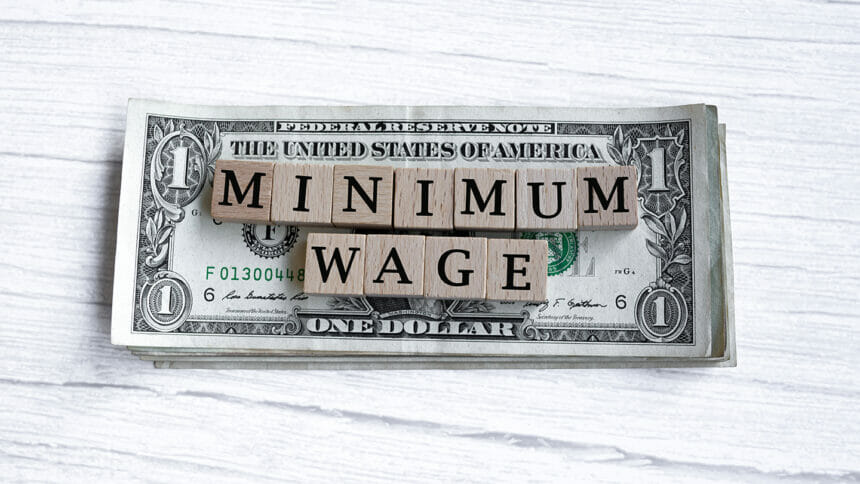
The federal minimum wage would increase to $11 an hour gradually over the next four years if a bill introduced Wednesday by Republican Sens. Bill Cassidy (LA), Susan Collins (ME), Shelley Moore Capito (WV), Tom Cotton (AR), Mitt Romney (UT) and JD Vance (OH) is signed into law.
The legislation also would mandate the use of E-verify in an effort to ensure that the wage increase only goes to workers legally eligible to work in the United States.
“Despite rising costs of living, the federal minimum wage has not been increased in more than a decade, which has left millions of Americans struggling to make ends meet,” Romney said in a statement. “Our proposal would raise wages for millions of workers without risking jobs and tether the wage to inflation to ensure it keeps up with rising costs. Additionally, requiring employers to use E-Verify would ensure that the wage increase goes to legal workers, which would protect American jobs and eliminate a key driver of illegal immigration.”
The bill, named the Higher Wages for American Workers Act of 2023, automatically would raise the minimum wage every two years to match the rate of inflation. It would create a slower phase-in for businesses with fewer than 20 employees. Additionally, the proposed legislation, if passed as written, would raise civil and criminal penalties on employers that hire unauthorized immigrants or violate I-9 paperwork requirements.
The proposal is a reboot of a similar bill that Romney and colleagues put forth in 2021 that would have raised the minimum wage to $10 an hour, with the same requirement of legal status. The bill failed to gain traction in the Senate.
In July of this year, Sen. Bernie Sanders (I-VT) spearheaded legislation to raise the federal minimum wage to $17 by 2028.
At the time, Sanders called the $7.25 an hour federal minimum wage a “starvation wage.” For a 40-hour work week, it would translate to $15,000 per year, an amount that is below the federal poverty line for a two-person household.
“It seems unlikely that either of the current proposals will be enacted. Instead, federal minimum wage will likely remain at $7.25 per hour, where it has been for well over a decade,” attorney Keith E. Kopplin with Ogletree Deakins in Milwaukee told the McKnight’s Business Daily. “Be that as it may, employers must still comply with higher state and local minimum wage requirements, many of which are automatically adjusted at regular intervals.”
States with their own minimum wage rate can exceed the federal minimum level. This year, the minimum wage exceeds the federal rate in more than half of the states. Washington state leads the nation, with a minimum wage of $15.74 an hour. Washington, DC, has a higher rate than any state, at $17 per hour as of June.


